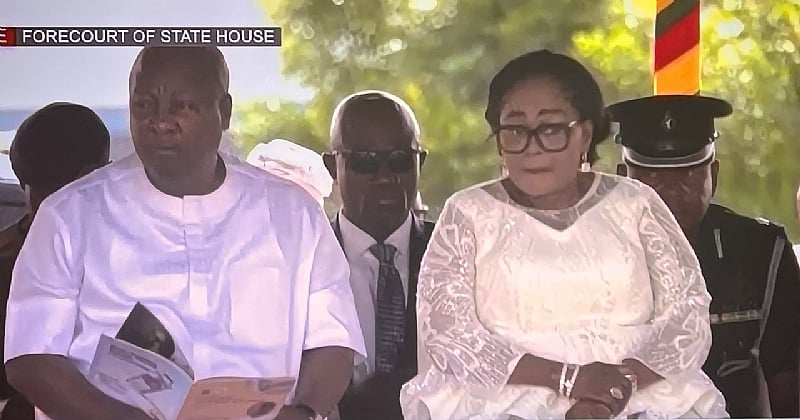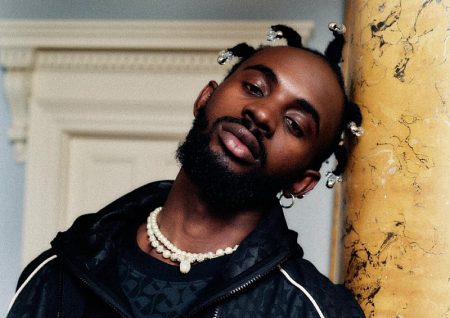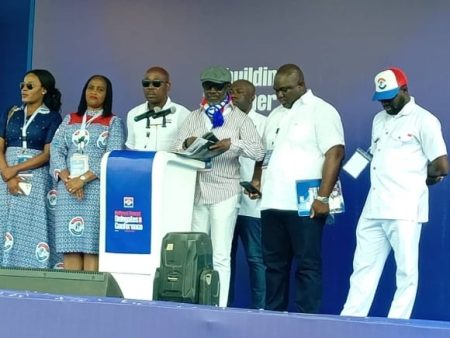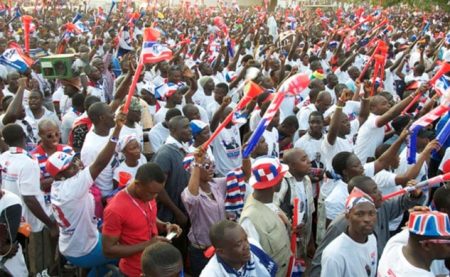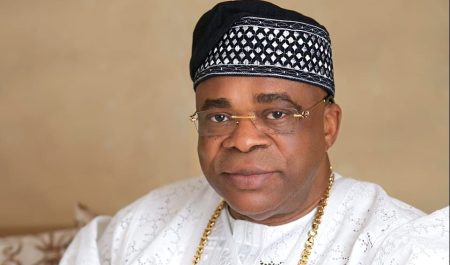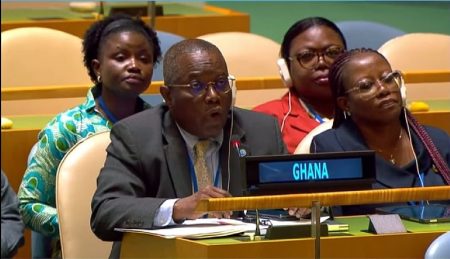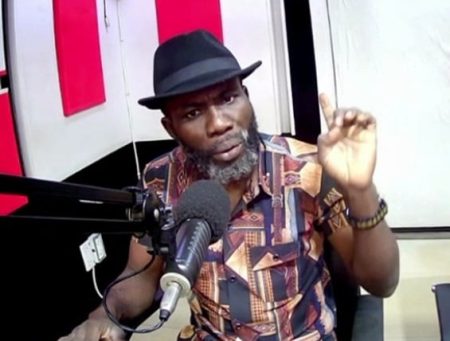A Nation United in Prayer: Ghana’s Inaugural Day of Thanksgiving
Ghana embarked on a new chapter in its national life on July 1st, observing its first National Day of Prayer and Thanksgiving. This landmark event, themed "One Nation Under God: Giving Thanks, Seeking Grace," transcended denominational boundaries, uniting Ghanaians in a collective expression of gratitude, reflection, and supplication for divine guidance amidst national challenges. The day served as a powerful testament to the nation’s deep-seated faith and the unifying potential of shared spiritual values. Led by President John Dramani Mahama, who championed the initiative during his 2024 campaign, the day unfolded as a vibrant tapestry of interfaith ceremonies and personal reflections, marking a significant moment in Ghana’s socio-religious landscape.
The carefully orchestrated events commenced with a grand interdenominational Christian service at the Forecourt of the State House in Accra. Thousands gathered, adorned in symbolic white attire, representing peace, purity, and national unity. The vibrant atmosphere of worship and prayer was palpable, echoing the sentiments expressed by President Mahama in his televised address, where he emphasized the occasion as a "sacred moment" in Ghana’s journey and underscored the nation’s strength rooted in spiritual and moral unity. Following the Christian service, the focus shifted to the Ghana National Mosque in Kanda for a Muslim prayer service, further solidifying the inclusive nature of the day and its embrace of Ghana’s diverse religious tapestry.
The meticulously planned observance extended far beyond the capital city. The National Prayer and Thanksgiving Committee, chaired by former Minister Elvis Afriyie Ankrah and coordinated by Prophet Dr. Akwasi Agyemang Prempeh, orchestrated a nationwide effort to ensure participation across all 16 regions. Through collaboration with Christian and Islamic leaders, the committee mobilized churches, mosques, and local communities to organize parallel prayer sessions in towns and cities throughout the country. This grassroots mobilization transformed the day into a truly national experience, resonating with individuals and communities from all walks of life.
The initiative garnered widespread support from influential religious bodies, including the Christian Council of Ghana and the Office of the National Chief Imam, who issued statements urging full participation. This unified endorsement from key religious leaders amplified the message of interfaith harmony and transformed the event into a powerful symbol of national unity. Clerics across the country echoed the sentiment that the day represented more than just a ceremony; it was a call for national healing and reconciliation. This message resonated deeply with Ghanaians, fostering a sense of collective purpose and shared destiny.
The impact of the National Day of Prayer and Thanksgiving extended beyond formal ceremonies, permeating the fabric of everyday life. Families gathered in homes, communities congregated in markets, and colleagues paused in workplaces to offer their own prayers and expressions of gratitude. This organic adoption of the day’s spirit underscored the widespread embrace of this nascent national tradition. The spontaneous outpouring of prayer and reflection demonstrated the profound resonance of the initiative within the hearts and minds of Ghanaians.
The strategic choice of July 1st, coinciding with Republic Day, imbued the occasion with profound symbolic significance. While Republic Day commemorates Ghana’s political independence, the National Day of Prayer and Thanksgiving anchored that freedom in spiritual reflection, creating a powerful synergy between civic pride and moral grounding. This intentional alignment of the two observances underscored the interconnectedness of the nation’s political and spiritual foundations, reinforcing the idea that true freedom encompasses both external sovereignty and internal moral compass. The convergence of these two significant days marked a pivotal moment in Ghana’s history, one that held the potential to reshape the national psyche and forge a stronger sense of collective identity.
The maiden National Day of Prayer and Thanksgiving was hailed as a resounding success, far exceeding expectations in terms of scale and impact. Observers recognized its potential to profoundly influence the national consciousness, fostering social harmony and national renewal through the shared experience of faith and gratitude. The government expressed optimism that this collective expression of spirituality would contribute to a more unified and purposeful nation, laying the groundwork for a brighter future. The overwhelmingly positive response to this inaugural event signaled its potential to evolve into a cherished annual tradition, one that not only honors Ghana’s rich religious heritage but also reinforces its collective aspirations for the future. As Ghanaians united in prayer, hope, and thanksgiving, they looked towards a future built on the foundations of unity, purpose, and grace. The day served as a powerful reminder of the enduring strength and resilience of the Ghanaian spirit, and its unwavering faith in a brighter tomorrow.





